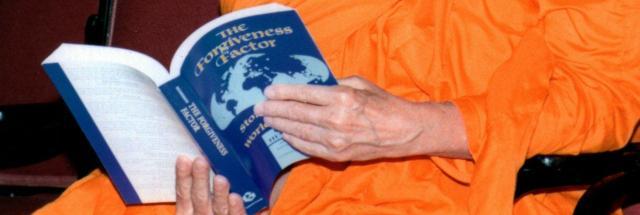KBOO 6 August 1987
What could be more English than a nanny. When my wife was on the Isle of Wight last year she watched sailing boats taking rookies out for a lesson. Accompanying them was a little boat to watch over their progress and safety. It was called appropriately, the nanny boat.
We used to live near St. James’s Park when our daughter was small and we could observe all the nannies with their charges. Not for them the collapsible, convenient strollers. No, they sported the old-fashioned, big-wheeled, solid-bottomed carriages, with hoods up for the rain. And sometimes you’d see the top-of-the-line nannies, at least in their view, the Norland-trained in their distinctive brown uniforms, graduates of a nanny school founded in 1892.
The nanny, a vanishing breed you might think. Not a bit of it. Some 5,000 nannies each year pass England’s prestigious National Nursery Examination Board, and increasingly American nannies, because of US immigration law, are homegrown, speaking with an American accent. I even attended graduation ceremonies at the Northwest Nannies Institute in Portland, and there is an American Council of Nanny Schools.
My wife’s cousin, Gay Hardcastle, is a nanny in Vancouver BC. Not a graduate nanny but one who has made her way on the job, the kind who is not so much interviewed by prospective parents but who interviews them to see if they meet her standards.
When she visited Portland I arranged for her to be on television. She was a great hit, prompting all sorts of telephone calls, many from people whose view of nannydom stems from Mary Poppins.. You’ll remember father’s description of the ideal nanny in the movie: ‘The British nanny must be a general. The British Empire lies within her grasp. Tradition, discipline and school must be the rule. Without them, disorder, anarchy, in short you have a ghastly mess.’ Or as Prime Minister Disraeli put it, ‘It has been discovered that the best way to insure implicit obedience is to commence tyranny in the nursery.’
Certainly the nanny’s role in Empire was as essential as, well, the Royal Navy. In fact, Jonathan Gaythorne-Hardy in his entertaining book ‘The Unnatural History of the Nanny’ feels that a closer look at their influence might lead to a new interpretation of British history, what he calls ‘the nanny view of history.’ He believes that probably the vast majority of those, in all spheres, who have governed or influenced our lives in Britain during the last hundred or 150 years were brought up by a nanny.
He writes, ‘These devoted or docile or savage women – these temperaments are as varied as human nature – might be expected to have played an infinitely greater part in the upbringing and character-formation of our great men than had their own parents. And not only great men; thousands, even perhaps millions, of lesser men too. For surely it had been an army, a great host of nannies who had swept Britain some time in the 19th and early 20th centuries, engulfing not just the aristocracy and the upper ranks of society, but reaching far down in the middle classes as well.’
Some time in the mid-1800s, according to Hardy, the nanny’s vehicle, the pram, was invented. ‘This’, he writes, ‘is one of those technological developments – comparable to the internal combustion engine in the outside world – which revolutionized a way of life. The nanny became mobile.’
There was a headline recently in our paper ‘She’s not just a nanny.’ I asked Gay her reaction to it. She said, ‘It’s true: sometimes she is hired as a nanny, but is overworked and underpaid and can be very unhappy. There is the other side where the nanny is considered a member of the family whose opinion is valued and appreciated. The latter is more often the case.’
In her experience a nanny is employed to care for the children and more often than not becomes a substitute mother for 8-10 hours a day. ‘To a dedicated nanny, working for a considerate family, this can be a very rewarding experience,’ she says. The relationship established between nanny and parents can benefit both sides, bringing new ideas to parents and children, often establishing a real friendship. Gay rarely spends more than a few years with a family so that neither she nor the children become too attached to each other. She is in touch with parents and children she has looked after –many now grown up – all over the world.
A nanny today cannot be compared with nannies of thirty years or more ago, she says, but as a short term job for someone interested in children it is a thriving business. ‘This job is not one to be taken lightly on either side. To leave one’s children in the care of a complete stranger is an enormous undertaking. It is a highly responsible job with very rewarding results.’ One of the many letters of recommendation she has received speaks of the ‘good fortune’ of a family with children who cannot know how fortunate they are and parents whom she has taught to expand their family in an unforeseen way. ‘Thanks for making it a year free of the worries and concerns which beset working parents.’
Which is what makes me think that with higher and higher percentage of families with both parents working, with heightened concern to find the right kind of day care and with many able to afford it, the nanny, far from disappearing for ever, as Hardy believes, is an idea whose time has come. At the moment, according to Carol Kavenaugh, founder of the Northwest Nannies Institute, demand for nannies far exceeds the supply. I do hope, however, people are not going to persist, as some do, in calling them in-home child care providers.

